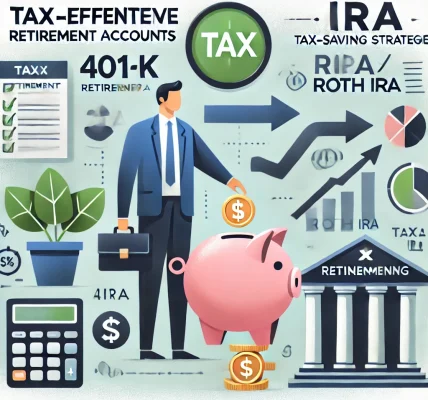In today’s world, health insurance is not just a necessity for securing your family’s health and financial future, but it also offers an array of tax-saving opportunities. With rising medical costs, having health insurance can provide financial protection, and the Income Tax Act provides significant tax benefits to policyholders, making it even more attractive.
In this blog, we’ll explore the tax benefits of health insurance and how you can use them to reduce your taxable income, save more, and ensure that you’re financially prepared for health emergencies.
Health Insurance and Tax Benefits: An Overview
Under Section 80D of the Income Tax Act, you can claim tax deductions on the premiums paid for health insurance policies. The amount you can claim as a deduction depends on the age of the insured, as well as whether the policy covers the individual, their family, or their parents.
The tax benefits provided by health insurance help you lower your taxable income, thus reducing the overall tax you pay. Let’s dive deeper into the various aspects of health insurance and its tax-saving benefits.
Tax Deductions for Health Insurance Under Section 80D
Section 80D of the Income Tax Act allows you to claim tax deductions for premiums paid on health insurance policies for yourself, your family, and your parents. The deductions vary depending on the age of the insured and the type of policy.
1. Health Insurance Premiums for Yourself and Your Family
Under Section 80D, you can claim deductions for the premiums paid for health insurance policies covering yourself, your spouse, children, and parents.
Tax Benefits:
- You can claim a maximum deduction of ₹25,000 per annum for premiums paid on policies for yourself, your spouse, and dependent children.
- If the policyholder or their family is senior citizens (aged 60 years or above), the deduction limit increases to ₹50,000.
- The premium can be paid for policies covering hospitalization expenses, critical illness, or medical treatment.
Example: If you are under 60 years of age, and you pay ₹15,000 in premiums for your health insurance policy, you can claim a deduction of ₹15,000 from your taxable income. If you also pay ₹12,000 for your spouse and children, you can claim an additional deduction of ₹12,000.
2. Health Insurance Premiums for Parents
In addition to covering yourself and your immediate family, you can also claim deductions for premiums paid for your parents’ health insurance policies.
Tax Benefits:
- For parents below 60 years of age, the maximum deduction available is ₹25,000.
- If your parents are senior citizens (aged 60 years or above), the deduction limit increases to ₹50,000.
- If both parents are senior citizens, you can claim a maximum deduction of ₹1,00,000 for premiums paid for their health insurance.
Example: If you pay ₹30,000 for your senior citizen parent’s health insurance, you can claim a deduction of ₹50,000 (the maximum limit for senior citizens).
Additional Deductions for Preventive Health Check-ups
In addition to premium payments, Section 80D also provides a deduction for preventive health check-ups. You can claim a deduction of up to ₹5,000 for health check-ups for yourself, your spouse, children, and parents. This can be a part of the ₹25,000/₹50,000 limit.
Example: If you and your spouse undergo preventive health check-ups costing ₹4,000, you can claim the amount as part of your overall tax-saving benefits under Section 80D.
Tax Benefits of Critical Illness Insurance
Critical illness insurance policies, which cover severe diseases like cancer, heart disease, or kidney failure, also qualify for tax deductions under Section 80D. If you pay premiums for such policies for yourself, your family, or your parents, you can avail of tax deductions.
These policies offer a tax-efficient way to safeguard yourself against critical medical conditions, while simultaneously reducing your taxable income.
Health Insurance and HRA (House Rent Allowance) Synergy
If you are a salaried individual and also receive House Rent Allowance (HRA), you may be able to take advantage of both the HRA and health insurance tax benefits together. While HRA helps reduce your taxable income by considering rent paid as a deduction, health insurance further reduces your income through Section 80D.
By using both these provisions, you can significantly reduce your overall tax burden.
How Health Insurance Reduces Your Taxable Income
The primary reason why health insurance is a great tool for tax savings is that the premiums you pay are deducted from your gross taxable income. Here’s a simple example to explain how this works:
Example:
- Let’s say your total income for the year is ₹10,00,000.
- You pay ₹20,000 in premiums for your own health insurance and ₹25,000 for your parents’ policy.
- Your total tax-saving from health insurance premiums = ₹20,000 + ₹25,000 = ₹45,000.
- As a result, your taxable income becomes ₹9,55,000, reducing your overall tax liability.
Key Benefits of Health Insurance Beyond Tax Savings
While the tax benefits are an important consideration, health insurance offers a host of other advantages, including:
- Financial Protection: In case of unexpected medical expenses, health insurance can cover hospitalization costs, surgeries, and treatments, reducing the financial burden.
- Preventive Care: Many health insurance policies also cover preventive health check-ups, vaccinations, and screenings, allowing you to catch health problems early.
- Cashless Treatment: Many health insurance providers offer cashless treatment in network hospitals, so you don’t have to pay upfront for medical expenses.
Conclusion: Make the Most of Your Health Insurance Tax Benefits
Health insurance not only protects your family’s health but also offers valuable tax benefits that help reduce your taxable income. By taking advantage of the tax-saving provisions under Section 80D, you can save a significant amount in taxes while securing your family’s future health needs.
It’s essential to evaluate your health insurance options and ensure that you are paying the premiums for yourself, your family, and your parents in a tax-efficient manner. Remember to explore both the premium deductions and preventive check-up benefits to maximize your tax savings.




